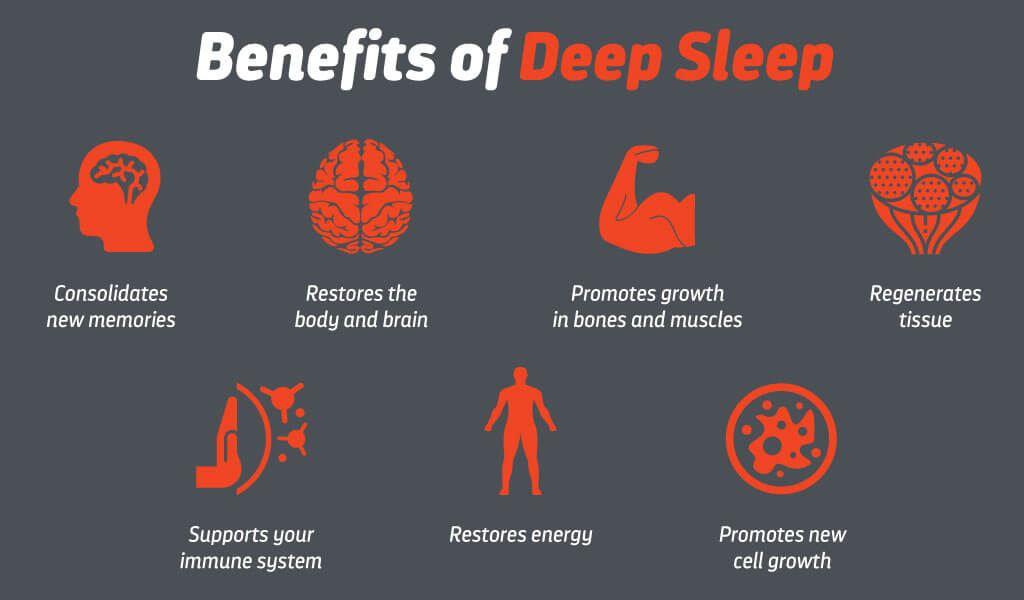Benefits of Sleep: Unlocking the Power of Restful Nights
The Importance of Quality Sleep
Sleep is a fundamental aspect of our lives that often goes overlooked. In today’s fast-paced world, it is common to sacrifice sleep in favor of work, socializing, or other activities. However, understanding the benefits of sleep can help us prioritize and optimize our restful nights.
Enhanced Cognitive Function
One of the key benefits of sleep is its positive impact on cognitive function. Adequate sleep allows our brains to consolidate memories, process information, and enhance learning abilities. Research has shown that a well-rested mind can improve problem-solving skills, creativity, and overall mental performance.
Improved Physical Health
Getting enough sleep is not only crucial for mental well-being but also for physical health. During sleep, our bodies repair and rejuvenate themselves. It is during this time that growth hormones are released, aiding in tissue repair, muscle development, and overall growth. Additionally, quality sleep has been linked to a strengthened immune system, reduced risk of chronic illnesses, and a healthier cardiovascular system.
Emotional Well-being and Mood Regulation
Have you ever noticed how a lack of sleep can make you feel irritable or emotionally unstable? Sleep plays a vital role in regulating our emotions and managing stress. It allows our brains to process and regulate emotions effectively, leading to improved emotional stability, better decision-making, and a more positive outlook on life.
Enhanced Productivity and Focus
When we are well-rested, our productivity and ability to concentrate increase significantly. Sleep deprivation, on the other hand, can lead to impaired focus, decreased alertness, and reduced cognitive flexibility. By prioritizing quality sleep, we can unlock our full potential, perform better at work or school, and accomplish tasks with greater efficiency.
Weight Management and Appetite Control
Believe it or not, sleep also plays a role in weight management and appetite control. Lack of sleep disrupts the balance of hormones that regulate hunger and satiety, leading to increased cravings, overeating, and weight gain. By ensuring we get enough sleep, we can support our efforts to maintain a healthy weight and make better dietary choices.
Strategies for Better Sleep
Now that we understand the incredible benefits of sleep, let’s explore some strategies to improve the quality of our restful nights:
Establish a consistent sleep schedule, going to bed and waking up at the same time each day.
Create a relaxing bedtime routine to signal to your body that it’s time to wind down.
Avoid electronic devices, caffeine, and stimulating activities before bed.
Create a comfortable sleep environment by ensuring your bedroom is dark, quiet, and at a cool temperature.
Engage in regular physical activity, but avoid intense exercise close to bedtime.
Limit daytime napping to avoid disrupting nighttime sleep.
Consider incorporating relaxation techniques such as meditation or deep breathing exercises.

In conclusion, sleep is not just a luxury but a necessity for our overall well-being. By understanding and prioritizing the benefits of sleep, we can unlock its full potential and reap the rewards of enhanced cognitive function, improved physical health, emotional well-being, increased productivity, and better weight management. Remember, a good night’s sleep is the foundation for a successful and fulfilling life.
Frequently Asked Questions about the Benefits of Sleep
1. Why is sleep important for our health?
Sleep is crucial for our overall health as it allows our body and mind to rest, repair, and rejuvenate. It helps improve memory, concentration, mood, and immune function.
2. How much sleep do I need?
The recommended amount of sleep varies depending on age. Generally, adults should aim for 7-9 hours of sleep per night, while teenagers need about 8-10 hours, and younger children and infants require even more.
3. What are the benefits of a good night’s sleep?
A good night’s sleep can lead to improved cognitive function, increased productivity, enhanced mood, better cardiovascular health, strengthened immune system, and reduced risk of chronic diseases such as diabetes and obesity.
4. Can lack of sleep affect my mental health?
Yes, chronic sleep deprivation can contribute to the development of mental health issues such as depression, anxiety, and mood disorders. It can also impair cognitive abilities and increase the risk of accidents.
5. How does sleep affect my immune system?
Sleep plays a crucial role in supporting and strengthening our immune system. During sleep, our body produces and releases proteins called cytokines that help fight infections, inflammation, and stress.
6. Does sleep impact my weight and metabolism?
Yes, sleep deprivation can disrupt the balance of hormones that regulate hunger and fullness, leading to increased appetite and cravings for unhealthy foods. It can also slow down metabolism and contribute to weight gain.
7. Can sleep improve my memory and learning abilities?
Adequate sleep is essential for memory consolidation and learning. During sleep, the brain processes and stores information gathered throughout the day, which enhances memory retention and improves cognitive performance.
8. How does sleep affect my mood?
Sleep deprivation can negatively impact mood, leading to irritability, mood swings, and a higher likelihood of experiencing symptoms of depression and anxiety. Sufficient sleep promotes emotional well-being and helps regulate emotions.
9. Can sleep help me perform better in sports and physical activities?
Getting enough sleep is crucial for athletes and individuals engaged in physical activities. It enhances muscle recovery, improves reaction time, coordination, and accuracy, and boosts overall athletic performance.
10. What can I do to improve my sleep quality?
To improve sleep quality, establish a consistent sleep schedule, create a relaxing bedtime routine, ensure a comfortable sleep environment, limit exposure to electronic devices before bed, avoid caffeine and heavy meals close to bedtime, and engage in regular exercise.




